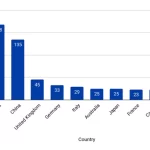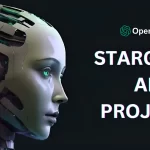
Identical Mutations Can Cause Different Types of Cancer
July 20, 2021In the recent few decades, there have been no significant advances in the treatment of pancreatic and biliary tract cancer, and no effective targeted medicines are now available. “The outlook for patients with pancreatic and extrahepatic bile duct cancer remains bleak, with around 10% of patients surviving five years,” says Dieter Saur, DKTK Professor for Translational Cancer Research at TUM’s Klinikum rechts der Isar, a DKTK partner site in Munich.
DKTK is a consortium led by the German Cancer Research Center (DKFZ) in Heidelberg that collaborates on a long-term basis with specialist oncology facilities at universities around Germany.
“It is critical to understand the fundamental genetic networks and interactions that drive these malignancies in a tissue-specific manner in order to develop novel therapeutic options that enhance these patients’ prognoses. This will enable future molecular interventions to be extremely precise.”
The researchers examined the development of biliary tract and pancreatic cancer in mice by substituting the normal “oncogenes” PIK3CA and KRAS with a variant harbouring the same mutation as in human tumours. The expression of these oncogenes in similar progenitor cells of the extrahepatic bile duct and pancreas resulted in strikingly divergent consequences. Mice with a faulty PI3K gene produced primarily biliary tract cancer, whereas mice with a mutated KRAS gene developed pancreatic cancer exclusively.

This was unexpected, given the fact that both genes are mutated in both forms of human cancer. Subsequent analysis identified the fundamental genetic pathways driving the tissue types’ distinct susceptibility to malignant transformation.
“Our findings pave the way toward resolving one of oncology’s most perplexing mysteries: Why can mutations in specific genes cause cancer only in specific organs?” Chiara Falcomatà, the book’s initial author, explains. “Our mouse research demonstrated how genes work in concert to produce cancer in several tissues. We identified key participants, the order in which they manifest themselves during tumour evolution, and the molecular pathways that transform normal cells into dangerous tumours. These pathways may be targets for novel therapeutics “‘.
The scientists discovered a sequential sequence of genetic changes in mice that contributes to the development of different cancer forms. Certain genetic events that occur in concert overactivate the PI3K signalling pathway, rendering them malignant. Others degrade regulator proteins, rendering them incapable of suppressing cancer growth.
“Understanding the genetic relationships between different cancer types will enable more accurate therapeutic decision-making in the future,” says Günter Schneider, Professor for Translational Cancer Research at Göttingen University Medical Center. “Our capacity to generate particular genetic changes in mice enables us to investigate the function of cancer genes and model distinct cancer subtypes. Additionally, these mice models are essential for testing anticancer medicines before to their usage in clinical trials “‘.
“What we demonstrated is that an oncogene’s function varies depending on the tissue type and other genes changed,” explains Roland Rad, a TUM professor and DKTK researcher. “To promote cancer, these oncogenes must hijack the inherent signalling network of a specific tissue. Interestingly, such networks exist only in certain types of tissue, rendering them particularly vulnerable to cancer formation.”
These discoveries have significant therapeutic implications. “The premise that many tissue-specific genetic interactions drive cancer progression reveals that no single gene can accurately predict a tumour’s response to a certain therapy,” Saur adds. “In the future, it will be critical to mechanistically understand the tissue-specific predictors of therapeutic response and resistance in order to advance precision medicine.”
Dieter Saur and Roland Rad are among the writers who work at TranslaTUM, TUM’s Center for Translational Cancer Research. Doctors collaborate with colleagues from the natural sciences and engineering to conduct study into the causes, diagnoses, and potential therapies of malignant diseases at this interdisciplinary research institute.
Reference
Genetic screens establish a context-specific PI3K/p27Kip1 node driving extrahepatic biliary cancer, Falcomata C, Barthel S, Ulrich A, et al. 10.1158/2159-8290. Cancer Discov. 2021; doi: 10.1158/2159-8290. CD-21-0209


















